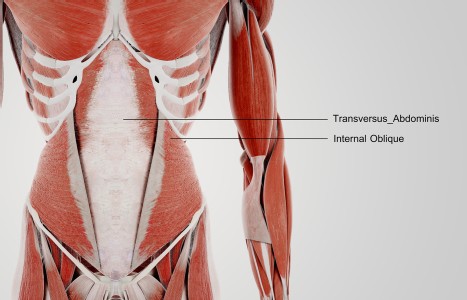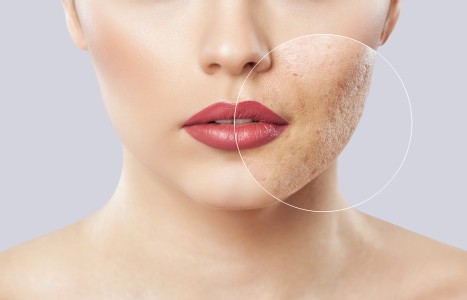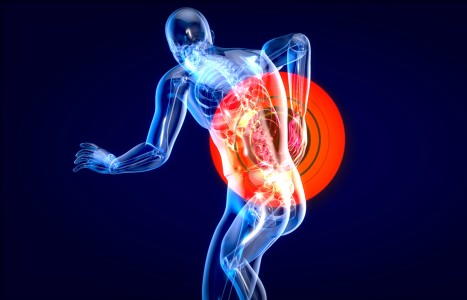TrA-2, my primary needle location, I needle 95% of the time and I think it works the best. You’ll know you have the right point location when you discover the muscle twitching when applying electric stimulation.
Pulse Diagnosis: Are We Allowing It to Become a Lost Art?
It is my experience that more and more practitioners of Oriental medicine have left behind the pulse as a method of diagnosis. The reason I hear over and over is this: "Honestly, I don't know how to do it. There wasn't a pulse course at my school, and I just didn't really learn how to do it." This is from graduates, old and new alike, who have attended a variety of educational institutions. When I talk with practitioners who say that they don't know how to take pulses, I usually ask, "Then how are you making your diagnoses?" And the answer: "I guess according to the patient's symptoms." So practitioners are making their diagnoses by guessing according to what the patient tells them about their symptoms. Would you be satisfied with that level of care? Is it true that TCM/OM schools continue to graduate practitioners who do not have adequate diagnostic skills? Or has our educational philosophy changed away from diagnosis-driven treatment to symptom-driven treatment?
Some practitioners are resorting to methods such as saliva tests, hair analysis and even computerized testing to find the cause of their patients' symptoms since they can't find the cause using pulse diagnosis. The aforementioned are Western medicine's way of doing a diagnosis. I wonder if we have completely lost touch with our ability to render a successful diagnosis using our traditional methods? It appears that we are not learning effective diagnostic skills during our medical education. Thus, we are destined to ask the patient what's wrong and then go look up how to treat their symptoms. The patient says they have diarrhea, and we look up how to treat diarrhea in one of our treatment texts or notes we took in clinic forum on a similar case. We give the patient the acupuncture "prescription" for diarrhea that we find in a book. We thus practice what I call "Prescription Oriental medicine." Practitioners convince themselves that they are making a diagnosis because they can fit the symptoms under a category like damp heat or qi deficiency. They believe that determining that will lead to the appropriate point prescription and herbal recommendation. However, unless you can figure out why there is damp heat or qi deficiency in this particular person, you are still only treating the symptoms.
One of the main reasons that I was attracted to Oriental medicine was because of its focus on treating the root; our medicine is about treating the cause of the condition/symptoms. Treating the cause, and therefore more readily accessing a cure, is the forte of our medicine. At least that is the tradition in which I was trained - to determine the cause of the condition/symptoms, not guess the cause.
Admittedly I was very lucky in my OM training because I had a mentor, Jim Ramholz, who believed that everything in Oriental medicine pertains to pulse diagnosis. He said that if pulse diagnosis was not a reliable diagnostic tool then it would not have been given the attention and acclaim that it has held since before the 2nd century BC. For him, other diagnostic tools are ambiguous when compared with the rich detail that one can feel in patients' pulses. The pulse is where you meet the patient and the cause(s) of the symptoms. I absolutely agree with his views on pulse diagnosis, my practice of OM is based on his model, and I am saddened (as he would be) by the apparent lack of training and interest in pulse diagnosis that I see in our field. I owe a great debt of gratitude to Jim.
I have heard people say that taking pulses is akin to making stuff up and that it can't possibly be an objective measure. Naturally, judgment and experience are clearly a factor (as they are in all areas and professions). There have been too many times where Jim took a patient's pulse and his "read" of their situation was spot on. You can't ask a patient everything, and there are some things about which they don't want to talk freely. But the energetic patterns of those events, illnesses, emotional problems and conditions are there; they are in the pulses to be seen by the adept practitioner. As a practitioner, you want to see all that information. Admittedly it takes time and dedication to be a skillful pulse diagnostician. But the reward of seeing your patients thrive is well worth the effort.
Practicing and continuing to improve my pulse diagnosis is what keeps alive my interest and love of Oriental medicine. It allows me to see each patient as an individual with a unique energetic flow. It allows me to watch my treatment change their imbalanced flow of qi into a more normal, balanced situation and watch their body move back toward good health. It is my opinion that lack of effective diagnostic skills could lead to the demise of Oriental medicine in the West. The bottom line is that Oriental medicine can only thrive if we develop the skills that are necessary to make correct diagnoses. Otherwise we're just spinning our needles and guessing, not helping as many people as possible.


